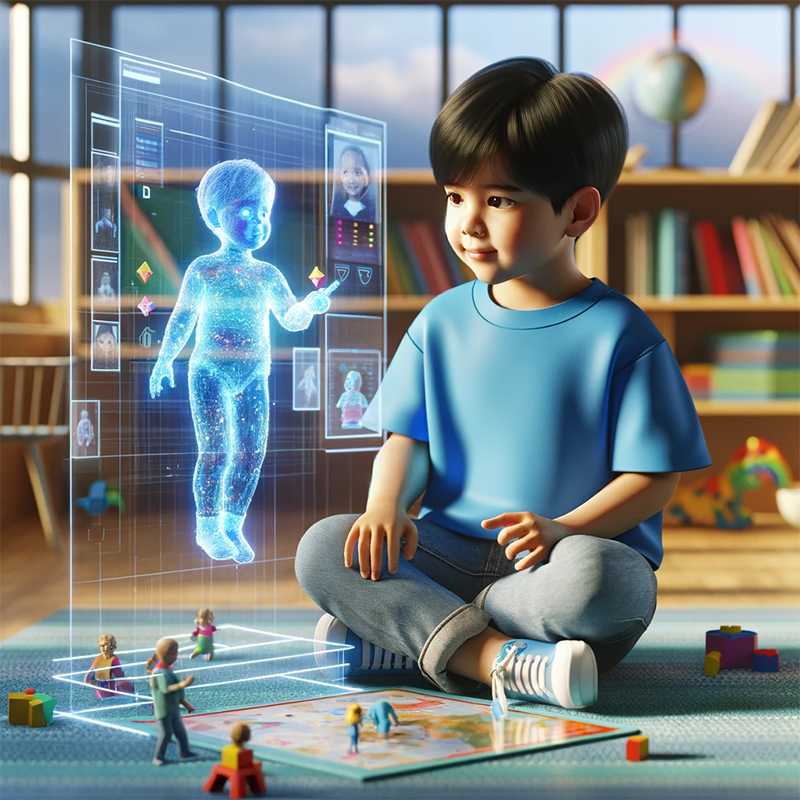The future of multimodal AI, particularly in relation to early childhood development, presents a fascinating and complex landscape. At the heart of this exploration is the visionary concept of a digital twin – a virtual counterpart that grows and ages alongside a child, offering personalized interaction and learning experiences. In this article I will delve into the potential psychological impacts, the adaptability of AI to individual learning styles, the efficiency of knowledge acquisition, and the paradigm shift in educational dynamics, before concluding with a forward-looking perspective on real-world applications.
Psychological Impacts
The introduction of a digital twin in a child’s life is likely to have profound psychological implications. On the one hand, this ever-present digital companion can offer constant support, validation, and companionship, potentially reducing feelings of loneliness and improving emotional well-being. However, there are concerns about over-reliance on virtual interactions at the expense of human connections. The nature of a child’s attachment to their digital twin, and its impact on their social and emotional development, warrants careful consideration. The possibility of creating unrealistic expectations about relationships and social interactions is a critical aspect to monitor.
AI Adaptability and Personalized Learning
A key advantage of a digital twin in education is its ability to learn and adapt to the individual learning styles of a child. Utilizing advanced AI algorithms, the digital twin can analyze the child’s responses, preferences, and progress, thereby tailoring its teaching methods for optimal engagement and understanding. This personalized approach could revolutionize how children learn, catering to their strengths and addressing their weaknesses in a manner that traditional educational systems might struggle to achieve.
Accelerated Learning through Reinforced Interaction
The digital twin concept could significantly expedite the process of learning and skill acquisition. Through continuous interaction, passive discussions, and educational games, learning becomes a seamlessly integrated aspect of the child’s daily life. This method of reinforced learning, where concepts are continuously revisited in various contexts, can enhance retention and understanding. Moreover, presenting learning opportunities in playful, game-like scenarios can increase motivation and reduce the perceived effort of learning, potentially leading to quicker and more enjoyable skill development.
Peer-Like Educational Dynamics
Positioning the digital twin as a peer rather than a superior authority figure could foster a more effective learning environment. Children might feel more comfortable and open to engaging with a companion they perceive as an equal. This dynamic can encourage exploration, curiosity, and a sense of shared discovery, which are crucial elements in effective learning. The peer-like approach also helps in reducing the pressure and anxiety often associated with traditional educational settings, where children might feel judged or evaluated.
Future Prospects and Real-World Implications
Looking ahead, the integration of digital twins in early childhood development poses both exciting opportunities and significant challenges. As we advance, it is crucial to balance technological innovation with ethical considerations. Ensuring the mental and emotional well-being of children, protecting their privacy, and fostering healthy social development are paramount. Real-world implementation would require rigorous testing, regulation, and an ongoing dialogue among educators, psychologists, technologists, and parents to ensure that the benefits of such technology are maximized while minimizing potential harms.
